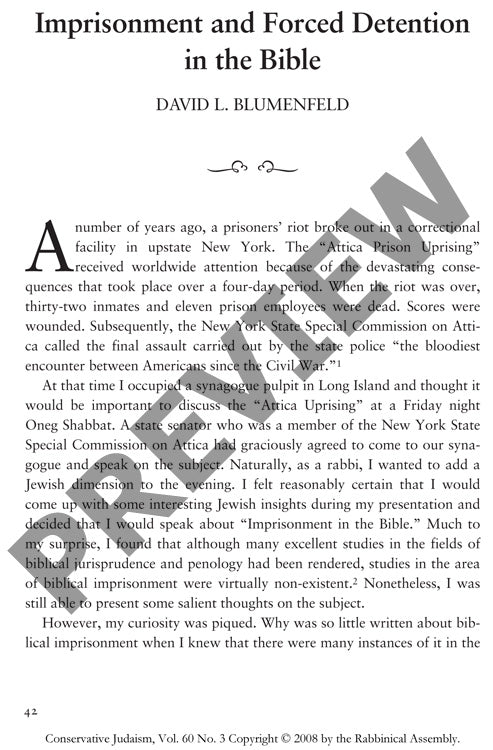Imprisonment and Forced Detention in The
Couldn't load pickup availability
Biblical texts reveal far more extensive use of imprisonment than scholars have traditionally recognized, with seventeen distinct instances of incarceration challenging the assumption that punitive confinement was rare in ancient legal systems. Through comprehensive analysis of biblical narratives and comparative Ancient Near Eastern sources, patterns emerge in the varied Hebrew terminology used to designate different types of confinement facilities. Etymological analysis of Hebrew prison designations, particularly *bet hassohar* and *bet ha'asurim*, combined with comparative linguistic evidence from Akkadian, Sumerian, and other Ancient Near Eastern languages, demonstrates that biblical translators have incorrectly rendered diverse Hebrew prison terms uniformly as "prison." This oversimplification obscures important distinctions between confinement facilities. The Hebrew root *'a-s-r* specifically denotes captive detention of foreign enemies, while the *bet hassohar* where Joseph was imprisoned proves to be a dome-shaped granary prison where captives performed forced labor grinding grain. This discovery illuminates previously unrecognized literary irony in the Joseph narrative, wherein a Hebrew prisoner confined in a granary prison ultimately becomes overseer of Egypt's granaries. The evidence establishes that forced incarceration was a widespread practice in the ancient biblical world, whether legally sanctioned or not, and that precise translation of Hebrew prison terminology reveals deeper layers of meaning in biblical texts.

More Information
-
Physical Description
-
Publication Information
Published 2008
ISBN
-
Publication Credits
David Blumenfeld

